Diarrhea is not a disease, it is a symptom. How to help the child and in what cases can not do without the help of a doctor?
Contents of
- Causes of pediatric diarrhea
- Symptoms of diarrhea in a child
- Why did diarrhea begin in a child after antibiotics?
- What is the cause of frequent diarrhea in a child?
- Diarrhea in newborns: causes, symptoms, treatment
- How to help a child with diarrhea?
- Diarrhea diarrhea in children
- Diarrhea preparations in children
- Treatment of diarrhea in children with folk remedies
- What medications are available for pediatric diarrhea: advice and feedback
- What should adults know about childhood diarrhea? Tips
- Video: children's intestinal infections
Diarrhea is the most common symptom in children, whose development rate is second only to ARD.Often, adults underestimate the danger of the situation. But according to WHO, 1.5 million children die each year from diarrhea. To successfully cope with the problem, parents need to know what is the danger of this symptom and how to properly help the child.
Causes of pediatric diarrhea
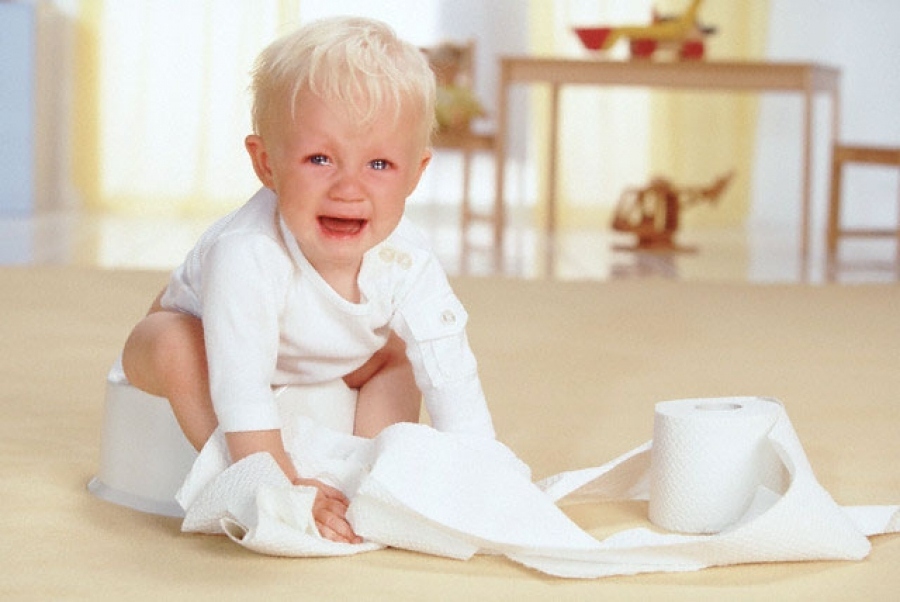 Causes of pediatric diarrhea
Causes of pediatric diarrhea Most often diarrhea develops in such cases:
• intestinal infectious diseases of both viral and bacterial origin
• intestinal microflora disorder, including after taking medications( antibiotics, laxatives)
•deficiency of digestive enzymes
Diarrhea can occur in helminthic invasions, surgical pathologies, poisonings, intolerance of certain products, disturbance of nervous regulation of motor activityof the intestine( neurogenic diarrhea).
IMPORTANT: To determine the true cause of this symptom and to prescribe an adequate treatment, only a physician after evaluating the clinical picture can.
Symptoms of diarrhea in the child
The following clinical manifestations of diarrhea are distinguished:
• frequent loose stool
• bloating
• abdominal pain
Diarrhea can be accompanied by other symptoms: general malaise, headache, fever, lack of appetite, vomiting, blood or pusin the chair. It is necessary to urgently seek medical help.
Why did diarrhea develop in a child after antibiotics?
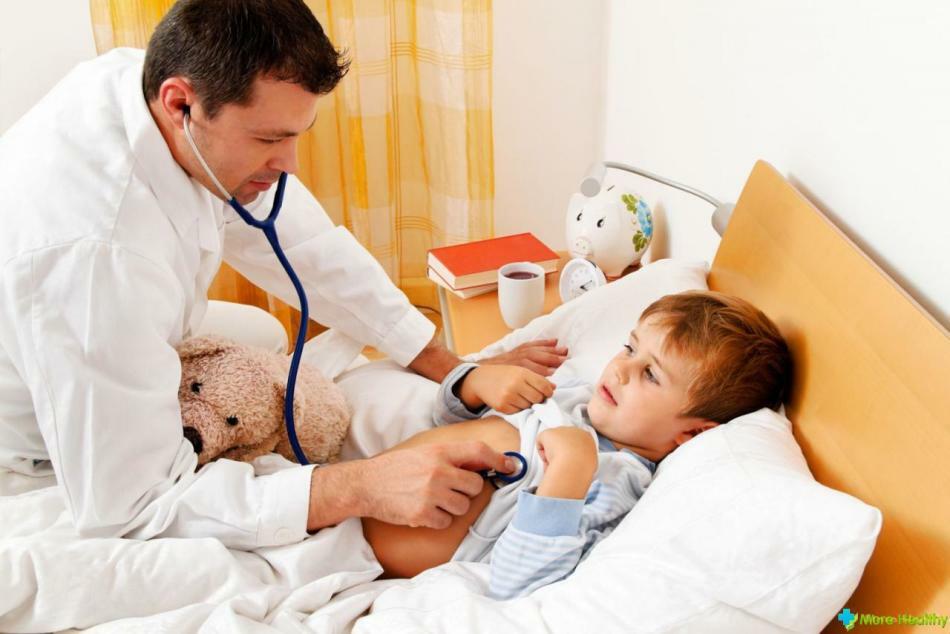 diarrhea after antibiotics
diarrhea after antibiotics Antibacterial drugs suppress the growth of not only pathogenic bacteria, but also the natural microflora inhabiting the gastrointestinal tract. Against this background, the multiplication of pathogenic microorganisms begins in the intestine. Some antibacterial drugs also affect intestinal motility. As a result of these processes, there is a diarrheal syndrome( antibiotic-associated diarrhea).
What is the cause of frequent diarrhea in a child?
- Frequent diarrhea, swelling and abdominal pain may be due to the inability of the gastrointestinal tract to digest a particular product. In this case, it is required to limit the use of such products by the child or to abandon them completely. Often, such symptoms are associated with lactase deficiency - the inability to digest lactose( lactose)
- The attacks of abdominal pain that pass after emptying the bowel with the discharge of a loose stool may be a sign of irritable bowel syndrome. This syndrome does not belong to the group of dangerous diseases, but under his "mask" other, more serious disturbances of the digestive tract
- diarrhea, which occurred during or after the use of medications, are considered as a side effect of drugs. In this case, you need to see a doctor to replace the drug or cancel it, and also pick up probiotics to restore the bowel flora.
Diarrhea in newborns: causes, symptoms, treatment
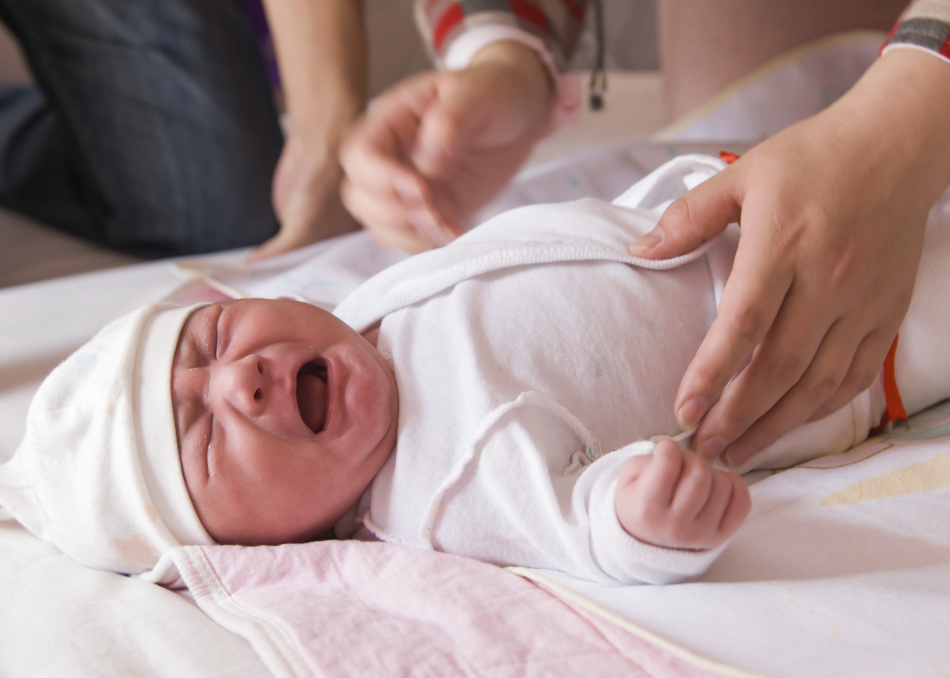 Diarrhea in a newborn
Diarrhea in a newborn From the fourth day of life, a newborn is given a certain frequency of bowel movement, whichin norm can reach 10 times a day. The chair of the newborn baby has a mushy consistency and can include mucus or lumps of unboiled food. If the child is feeling well and is gaining weight, there is no cause for concern.
Symptoms of diarrhea in children of the first month of life:
• frothy, watery stool with mucus
• significant increase in the
stool • lack of appetite
• irritability, anxiety, tummy tucking
• vomiting, fever
Causes of diarrhea in newborns and ways of treatment:
• lactose insufficiency - if the symptoms are severe, enzyme preparations are prescribed or transferred to lactose-free mixtures
• Functional indigestion - does not require treatment, ncorrection of diet, reduction in the frequency of breastfeeding or the volume of one feeding( with artificial feeding)
• taking medications - it is necessary to cancel or replace the drug, prescribe probiotics
• acute intestinal infection - treatment is prescribed by the doctor depending on the pathogen and the severity of the symptoms, active rehydration, antipyretic agents are shown even with a slight increase in body temperature
IMPORTANT: Young children are prone to severe impairmentwater and mineral metabolism, the critical amount of liquid may be lost within a few hours. Severe diarrhea, accompanied by frequent vomiting, refusal to drink, the presence of signs of intoxication and dehydration requires immediate hospitalization.
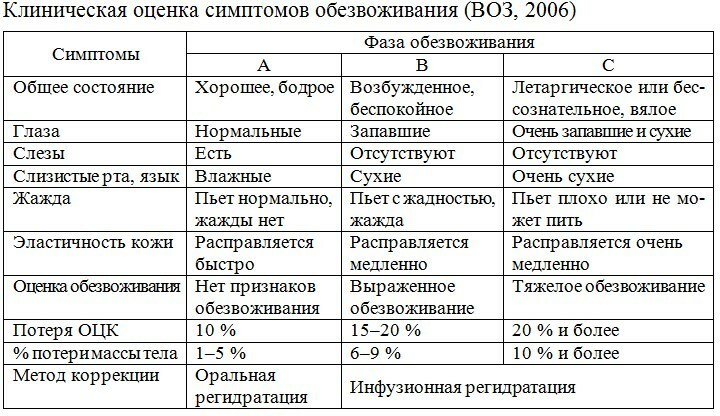 evaluation of dehydration
evaluation of dehydration How to help a child with diarrhea?
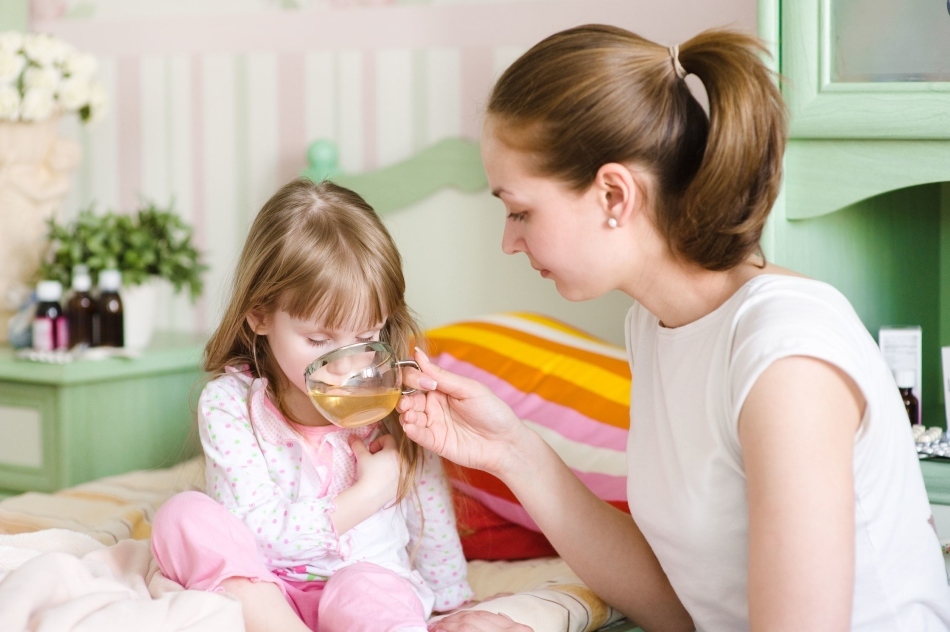 How to help a child with diarrhea?
How to help a child with diarrhea? The first and most basic thing that is necessary for the body of a child with diarrhea is to compensate for fluid loss. Active "otpaivanie"( oral rehydration) is most effective in the first hours of the onset of the disease, this helps reduce the likelihood of developing severe forms of dehydration and successfully cure the child at home.
Drinking room temperature should be given little by little, at short intervals. For soldering, a mineral without gas, a weak warm green tea without sugar, a salty rice broth( 3 g of salt per liter of solution), a blueberry compote or jelly, a decoction of dried fruits will suit.
To restore the water and mineral balance, you can use raisin water: take 1 liter of water with 100 g of raisins and half a teaspoon of salt, bring to a boil and cool.
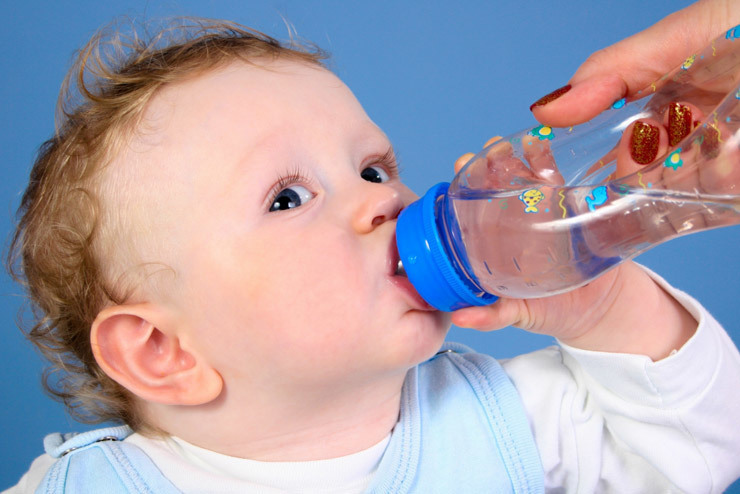 drink
drink - The optimal means for restoring the water-salt balance are special electrolyte solutions( for example, regidron)
- Sorbents will help to reduce intoxication. They act in the intestines like a sponge, soaking up toxins and removing them from the body. Take sorbents according to the instructions, observing the dosage in accordance with the age or body weight of the child
- To restore the balance of microorganisms in the intestine, special preparations are used to "colonize" the intestine with a healthy microflora - probiotics
- In diarrhea, it is also important to "unload"special diet
Diarrhea in children
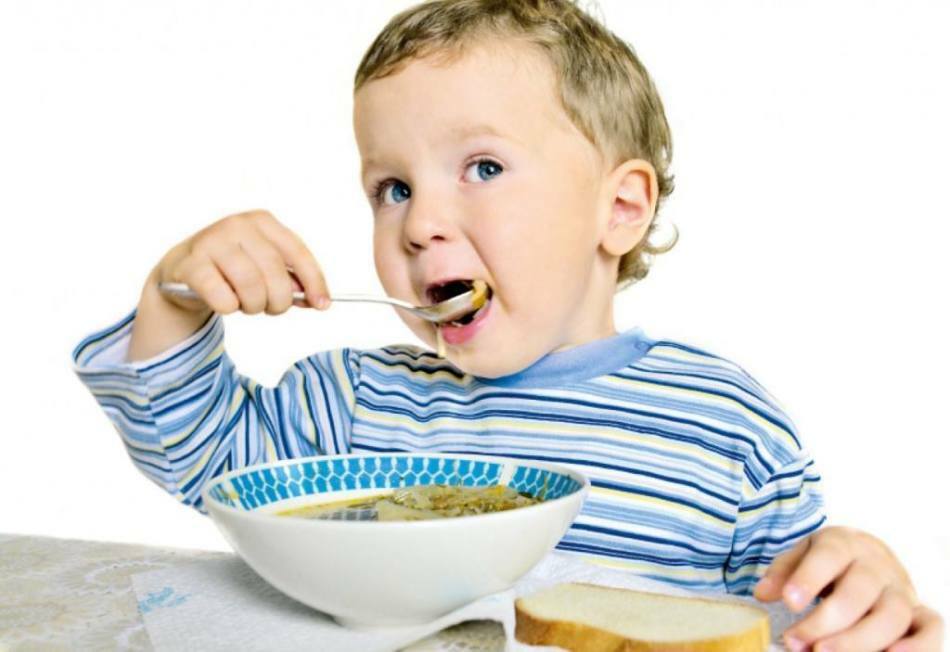 diet for diarrhea
diet for diarrhea - Nutrition for diarrhea in a child should be frequent and fractional. From the diet, fatty foods, foods containing high amounts of fiber, milk, baking, confectionery, juices with high sugar content, soda
- are excluded. Rinsed soups, white breadcrumbs, low-fat soft cottage cheese, rice porridge on water, boiled chicken breast, soft-boiled eggs are allowedor steam omelet, compote from dried fruits( without sugar), tea, mineral water without gas.
- If the baby is breastfeeding, the diet should be kept as normal - breast milk is well tolerated by children with diarrhea. Lactose of female milk contains anti-infectious factors and substances that promote the recovery of the intestinal mucosa
- It is recommended that children with artificial diarrhea be replaced with an adapted low-lactose mixture. The duration of the low-lactose diet is determined by the child's condition, you can return to the usual mixture immediately after the formation of the
- chair begins. Children receiving complementary foods are advised to completely return to breastfeeding during diarrhea, or to prepare porridges on water, baked apple, bananas, and sour-milk products. At the same time to introduce new products in the acute period is not recommended
Drugs for diarrhea in children
Using rehydration solutions is a simple, effective, inexpensive and affordable home-based method for restoring water and salt deficiencies in the body. 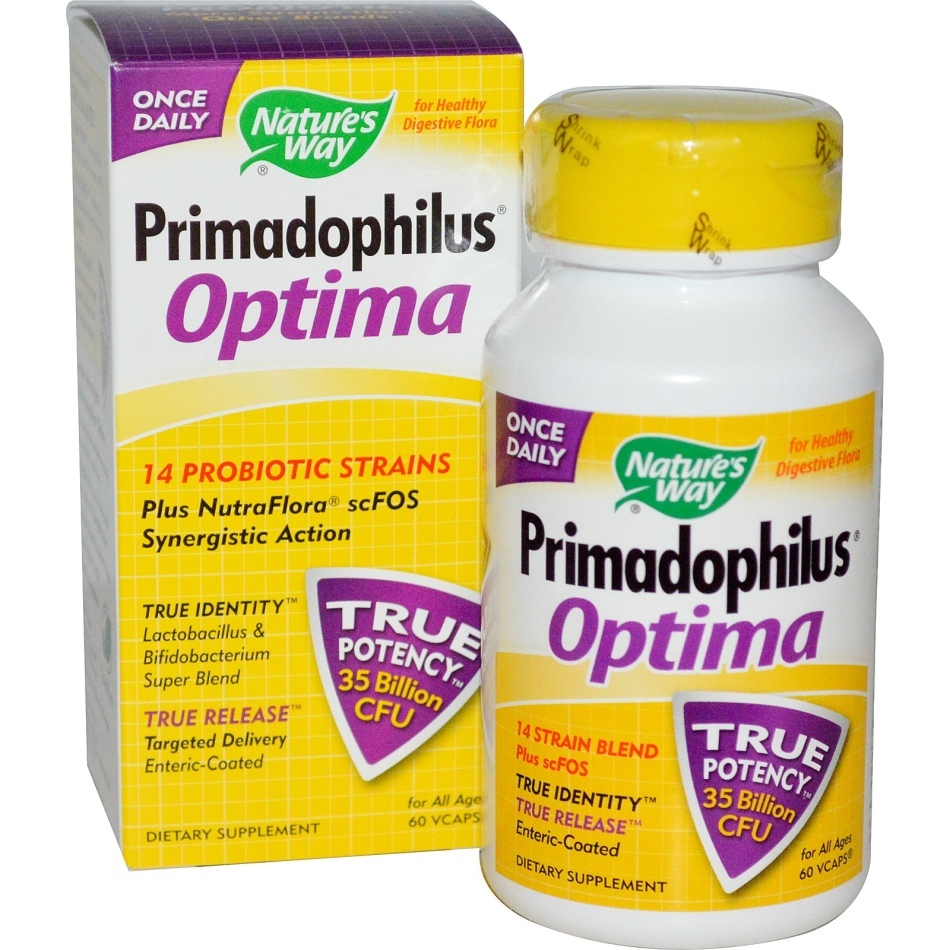
- Rehydrating products are sold in pharmacies in the form of a powder or tablets for the preparation of a solution: Hydrovit, Toastrol, Regidron, Trigidron, Human Electrolyte and others. These are over-the-counter drugs, which do not have contraindications. It is very important to start taking solutions with the first symptoms of diarrhea, therefore it is advisable to always have a rehydration remedy in the home medicine cabinet
- . Probiotic preparations promote normalization of intestinal flora and accelerate recovery, are also prescribed for the prevention of dysbacteriosis when taking antibacterial drugs
- Biological properties and functions of probiotic bacteria are significantly different. When choosing a probiotic, take into account the composition of its bacteria and the level at which it can act
- In intestinal disorders caused by the virus, it is recommended to choose preparations containing lactobacilli ( Lactobacterin, Biobactone, Primadofilus )
- For bacterial disorders,, containing lacto-and bifidobacteria( Bacteriobalance, Bifidine, Linex )
- The selection of the probiotic drug depends on the degree of mthe incidence of the disease, the degree of disturbance of the microflora and the causes of the development of diarrhea, so this issue is better entrusted to the treating doctor
- Enterosorbents reduce the duration of intoxication with diarrhea, remove from the body toxins of microbes, fix on their surface rotavirus, accelerate the recovery
Sorbents differ in dosage form and chemical structure:
• activated carbon in tablets - is considered to be an obsolete sorbent, which is inferior to modern drugs in terms of absorption rate endootoxins.
• polysorb ( powder)
• enterosgel - gel paste, no age restriction
• - besides the adsorptive properties it also has an enveloping effect, enhancing the barrier function of the gastrointestinal mucosa
• filter
• atoxyl
• white coal
Sorbents take in breaks between eating and taking other medicines. Ideally, the choice of the drug, the way it is used, the dosage and the duration of treatment, qlzhen appoint a doctor.
Preparations normalizing intestinal peristalsis: loperamide, imodium, laremid - only relieve the symptom, inhibit the intestinal peristalsis and reduce its secretion, which can lead to self-poisoning( intoxication) of the body. It is necessary to give such medicines to the child with care, having preliminary consulted the doctor. 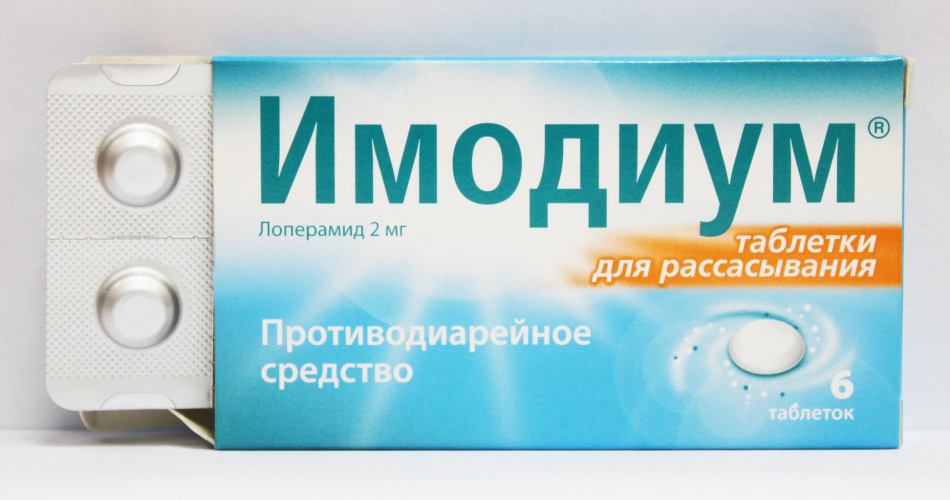
Contraindications:
• for diarrhea with blood or pus in stool mass
• children under 2 years of age
Antimicrobial drugs are not always necessary for diarrhea, and unreasonable prescription of antibiotics can be harmful. Therefore, you can take antibiotics only for the doctor's prescription, strictly observing the multiplicity, dosage and duration of administration.
Treatment of diarrhea in children with folk remedies
• Blueberry compote( jelly) or decoction of dry blueberries is widely used as a contraposition for non-infectious bowel disorders
• Chamomile broth has a moderate anti-inflammatory, antispasmodic and anti-inflammatory effect of
• Pomegranate custard infusion: 1 tableSpoon a dry crust of pomegranate pour a glass of boiling water and insist 25-30 minutes. Drink 25 ml every 3.5 hours
• Decoction of dried pears replenish fluid loss and enrich the body with trace elements. Drink in small, small portions, no restrictions
• Decoctions or tinctures of ready-made pharmacy fees, phytotea "fixing"
 pharmacy fees
pharmacy fees What drugs exist from pediatric diarrhea: advice and feedback
In case of acute diarrhea in a child without the temperature and symptoms of intoxication, it is necessary to switch to diet and actively drink. For soldering it is better to use pharmacy solutions. Many mothers respond positively about the preparation Human electrolyte with the taste of a banana.
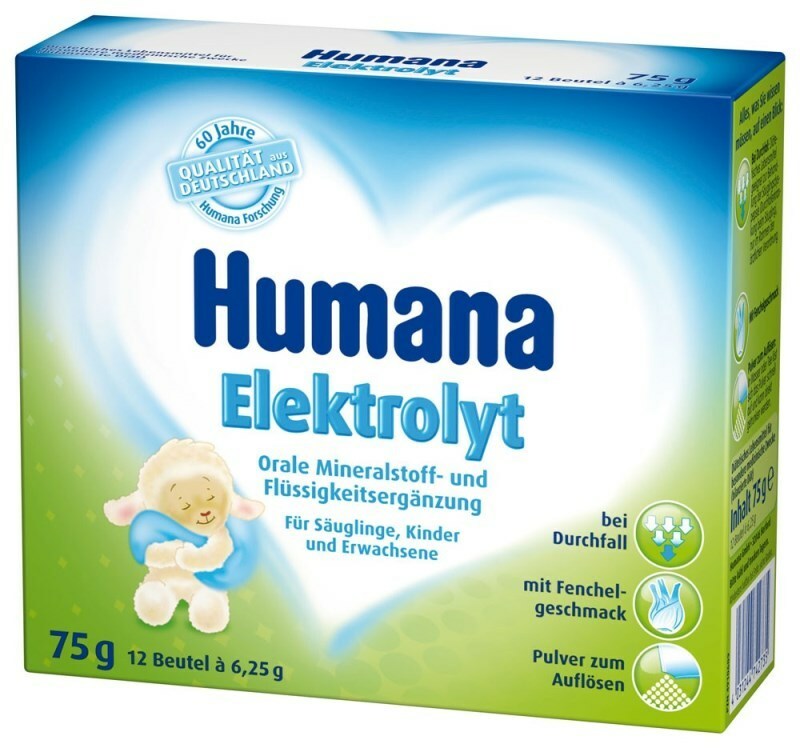 Humman electrolyte
Humman electrolyte Advantage of the solution - it has a pleasant taste and aroma, and children enjoy it with pleasure.
You can use enterosorbents between meals. Among such medications, Smecta has proved to be well-suited - the drug is suitable for children from birth, has no contraindications.
IMPORTANT: These drugs limit the possibility of self-treatment of diarrhea in children. Any other drugs should be prescribed by a doctor.
What should adults know about childhood diarrhea? Tips
• Diarrhea can not be considered a safe symptom
• The smaller the age of the child, the more likely the development of complications
• The main thing is to prevent dehydration, and for this child you need to actively solder
• The child needs a sparing diet of
• In between meals,sorbents
• Probiotics, antibiotics, enzymes and other drugs should be given to the child only according to the prescription of the doctor
The doctor should be consulted for diarrhea:
• at the age of the child who has become illyear
• if there is no tendency to improve within 24 hours
Immediate call of an ambulance is necessary if:
• the child has persistent vomiting
• diarrhea is accompanied by a sharp increase in body temperature that can not be brought down
• more than 6 hours no urine
•with signs of severe dehydration( dry tongue, sunken eyes, dry skin)
• feces have blood admixtures
